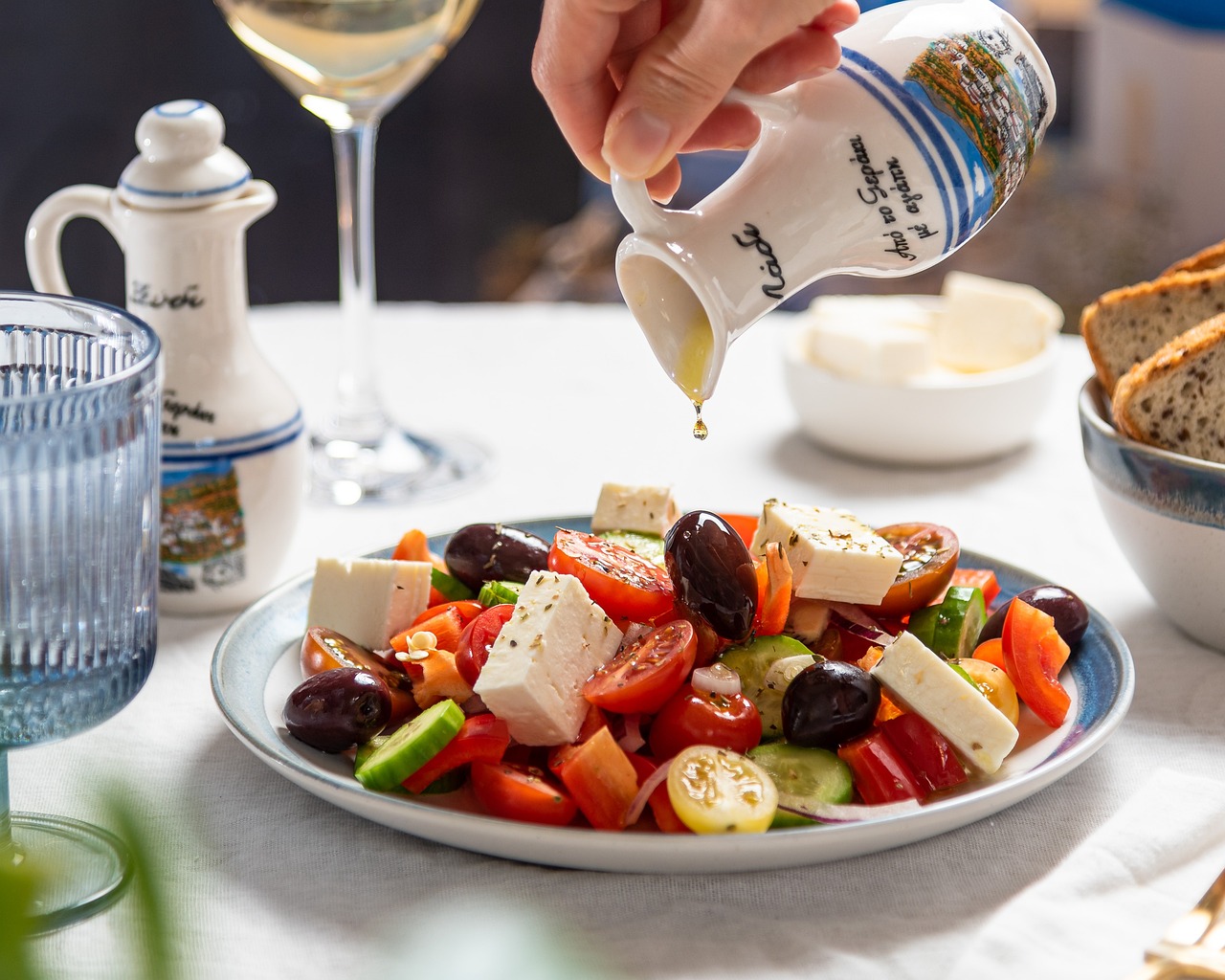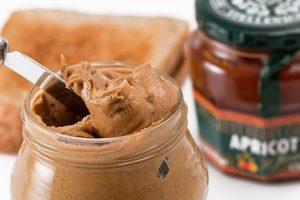
Salad is a dish primarily made of raw or cold ingredients, including vegetables, fruits, grains, proteins, and dressings, and can be served as a starter, side dish, or main course. Salads are significant in a diet for several reasons. They are nutrient-rich, providing essential vitamins, minerals, and antioxidants that support overall health and immune function. Salads also contain high dietary fiber, promoting digestive health, regulating bowel movements, and aiding in weight management. Additionally, they are low in calories, making them suitable for weight loss or maintenance while still offering good nutrition. Many salad ingredients have high water content, contributing to hydration and supporting various bodily functions. Salads are adaptable dishes that can be tailored to individual tastes and dietary needs, featuring various ingredients like leafy greens, nuts, and proteins such as chicken or tofu. Incorporating salads into meals promotes healthy eating by encouraging the intake of whole, unprocessed foods, which can improve overall diet quality and lower the risk of obesity, heart disease, and other related health issues. Salads can be eaten at any time of day, but lunch and as an appetizer before dinner are the best times to consume them. Here are 3 salad recipes you can try at home:
- Chickpea and cucumber salad: Combine 1.5 cup soaked, drained and rinsed chickpeas with 1 chopped cucumber, 1/2 chopped red bell pepper, 1/4 finely chopped red onion, and 1/4 cup freshly chopped parsley in a large bowl. For the dressing, in a small bowl, mix juice of 1 lemon, 2 tablespoon olive oil, 1/2 teaspoon cumin powder, salt, and pepper. Pour the dressing over the salad and toss. Serve chilled or at room temperature.
Benefits: Chickpeas are a nutritious food high in protein, fiber, vitamins, and minerals. They serve as a great plant-based protein source for vegetarians and vegans. The dietary fiber in chickpeas aids in digestive health, promotes regular bowel movements, prevents constipation, and supports a healthy gut microbiome. It also helps lower cholesterol levels, benefiting heart health, while potassium in chickpeas contributes to blood pressure regulation. Cucumbers are low in calories and high in vitamins and minerals, especially vitamin K, vitamin C, and potassium. They contain antioxidants that help reduce oxidative stress. Their high water content, about 95%, aids in hydration, supports heart health, and helps maintain healthy blood pressure. Staying properly hydrated is important for bodily functions like digestion and circulation, and cucumbers also help keep the skin hydrated. - Quinoa and Avocado salad: In a large bowl, mix 1 cup cooked quinoa, 1 ripe and diced avocado, 1 cup halved tomatoes, 1/2 cup chopped cucumber, and 1/4 cup finely chopped red onion. Drizzle with juice of 1 lemon and 2 tablespoon olive oil, then add 2 tablespoon freshly chopped cilantro, salt, and pepper. Toss gently to combine and serve chilled.
Benefits: Quinoa is a highly nutritious food, offering complete protein with all nine essential amino acids, making it ideal for vegetarians and vegans. It is abundant in fiber, magnesium, iron, B-vitamins, and antioxidants, promoting heart health by lowering cholesterol and regulating blood pressure. Its low glycemic index helps in managing blood sugar levels, which is beneficial for weight control. The fiber in quinoa supports digestion and prevents constipation, while its complex carbohydrates ensure long-lasting energy. The protein content supports muscle repair and growth, especially for active individuals. Additionally, quinoa contains antioxidants that protect the skin from environmental damage. It is also gluten-free, making it suitable for those with gluten sensitivities or celiac disease. Avocado is rich in monounsaturated fats, especially oleic acid, which benefits heart health. It also provides essential nutrients like potassium, vitamin K, vitamin E, vitamin C, and folate. The healthy fats in avocado can lower bad cholesterol levels while increasing good cholesterol, ultimately reducing the risk of heart disease. - Sesame noodle salad: Combine 1 cup cooked soba noodles (made of buckwheat) with 1 sliced red bell pepper, 1 julienned carrot, 1 julienned cucumber, and 1/4 cup sliced green onions in a large bowl. In a separate bowl, mix 2 tablespoon soy sauce, 1 tablespoon rice vinegar, 1 tablespoon sesame oil, 1 teaspoon honey, and 1 teaspoon ginger to create a dressing. Pour the dressing over the noodle mixture and toss well. Garnish with sesame seeds, cilantro, and peanuts if desired, and serve either chilled or at room temperature.
Benefits: Sesame oil and seeds are high in healthy polyunsaturated and monounsaturated fats, which are beneficial for heart health by lowering bad cholesterol and increasing good cholesterol levels. Additionally, sesame oil contains antioxidant compounds like sesamin and sesamol that help protect cells from damage. Soba noodles are rich in complex carbohydrates, offering sustained energy along with protein and fiber that promote fullness. Adding vegetables like bell peppers, carrots, and cucumbers enhances the salad with essential vitamins and minerals important for immune function, bone health, and blood pressure regulation.
-Triparna






